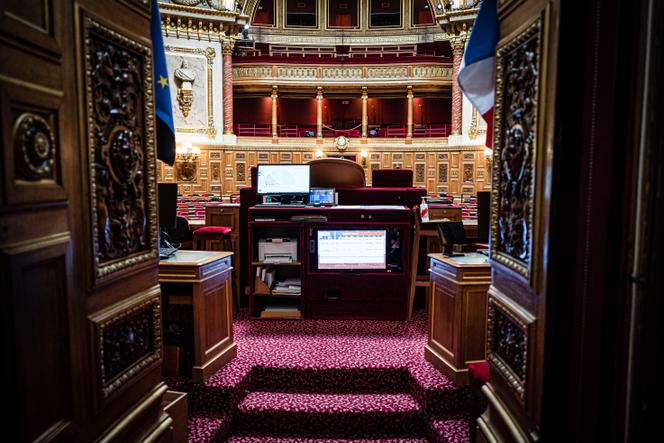


France's Sénat has been dominated by the right since the birth of France's Fifth Republic in 1958, with the exception of a three-year Socialist interlude between 2011 and 2014. The elections taking place on Sunday, September 24, are unlikely to radically alter its composition.
Like every three years, half the seats in the chamber will be renewed, but there is little doubt as to the outcome: Les Républicains (LR, right-wing) and their centrist allies are almost certain to retain an absolute majority in the Palais du Luxembourg. And, as has become their custom, the senators will promptly re-elect Gérard Larcher (LR) to the chamber's presidency, for the fifth time since 2008.
In this indirect election, 79,000 electors – 95% of whom are designated by municipal councils – will elect 170 senators in 42 mainland and overseas départements, including Paris, as well as the overseas territories of Saint-Pierre-and-Miquelon and New Caledonia, and six of the 12 constituencies for French nationals living abroad. Although the voting system differs according to the size of the constituency, the right will once again benefit from a stable electorate thanks to its extensive network of local elected officials, in the wake of its victories in the 2020 municipal elections.
"There can't be any big swings," expects Bruno Retailleau, the president of the LR group in the Sénat, which is likely to retain around 145 seats, give or take a few. "The prism of this election is essentially local," said Jean-Jacques Urvoas, a former Socalist justice minister, "Mayors and their municipal councils meet everyone during the campaign. And they're expecting a return on investment from the senators: What are you going to do for our territory?"
For example, Alain Wallart, mayor of the town of Féchain in northern France, has been battling with an urbanism agency for years to renovate the municipal school. The school's proximity to a 7-ton rock that was used as a polishing device in the Neolithic age subjects it to strict town-planning rules that thwart the Wallart's plans. "Personally, I'll be voting for the senator who has helped me a lot with these concerns," he said. "It seems obvious to me."
In an election where personal relations between local representatives and candidates are at least as important as political labels, the candidates running to join the right-wing senatorial majority are committed to conducting a campaign far removed from the national political debate and its vicissitudes. "The goal for the senatorial majority is to say that this is a local election. But we have to make this a national election," said Guillaume Gontard, president of the Sénat's Green group.
You have 71.44% of this article left to read. The rest is for subscribers only.
